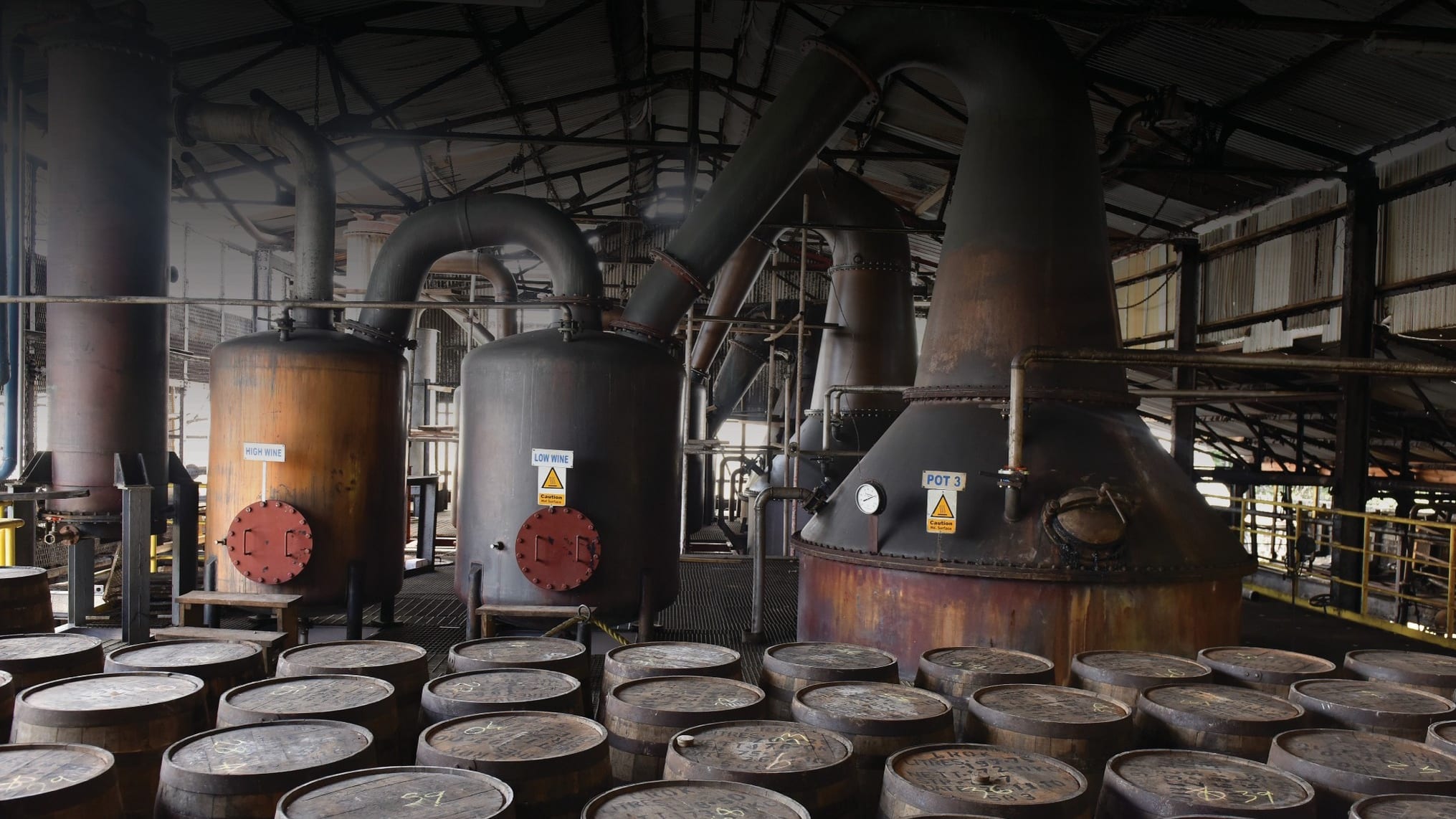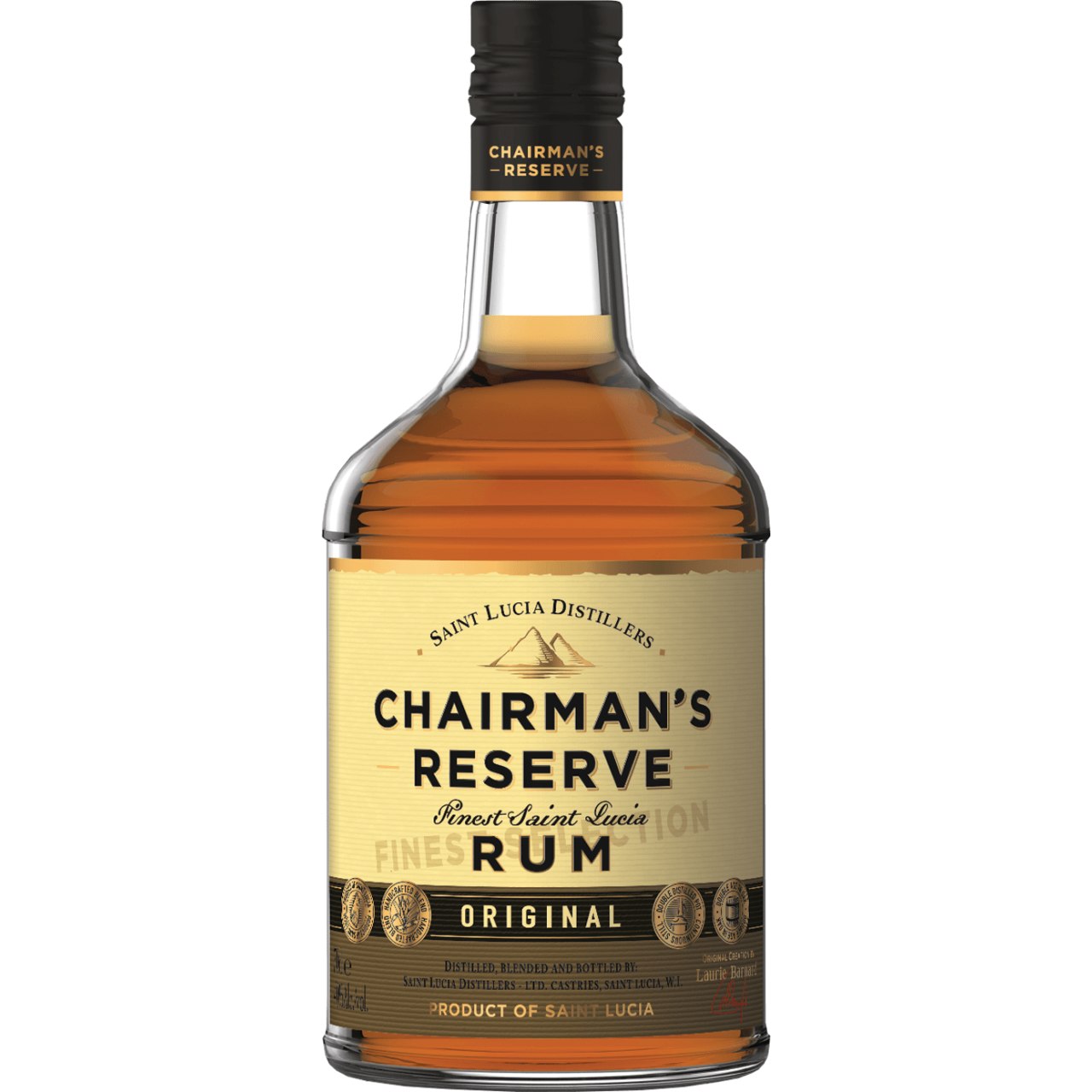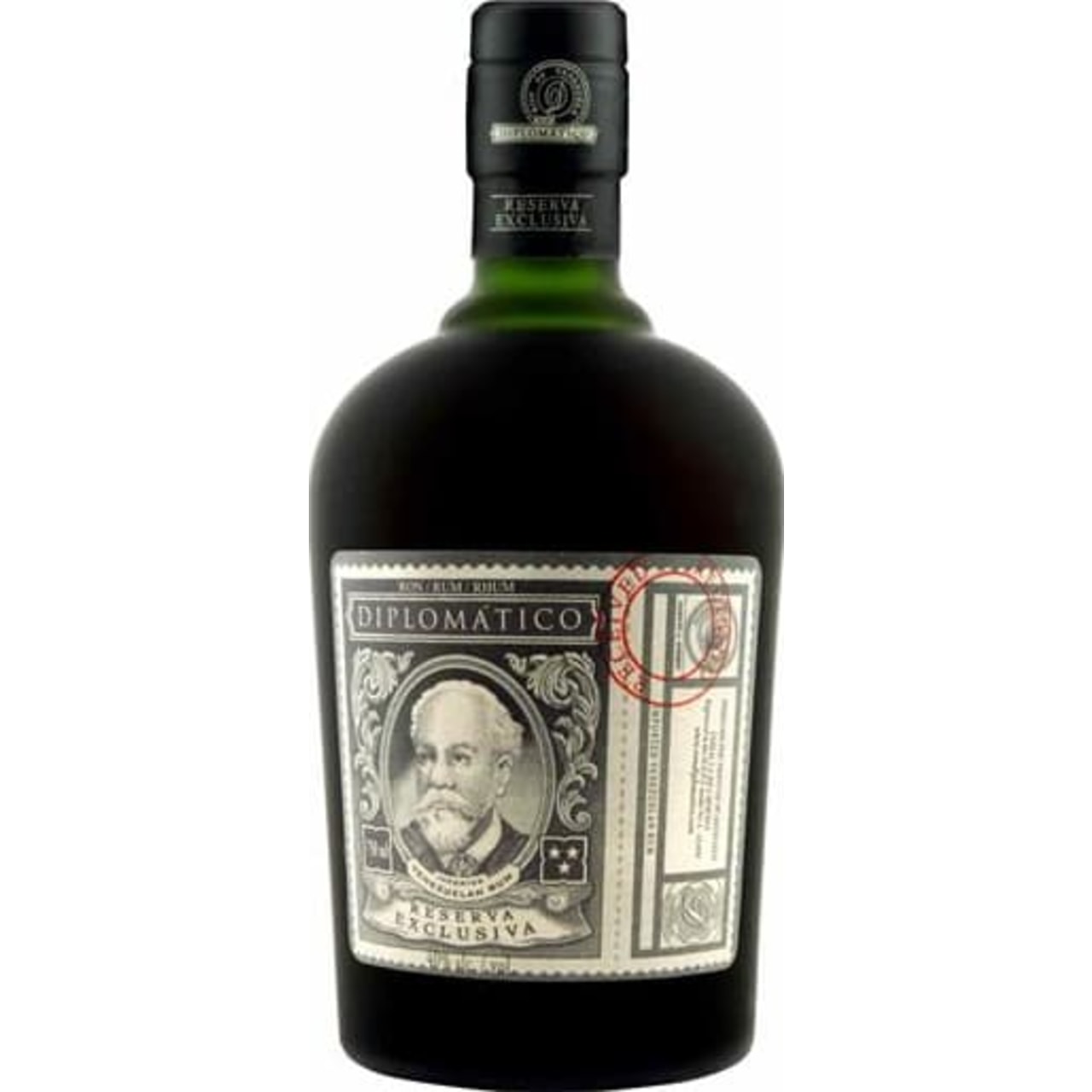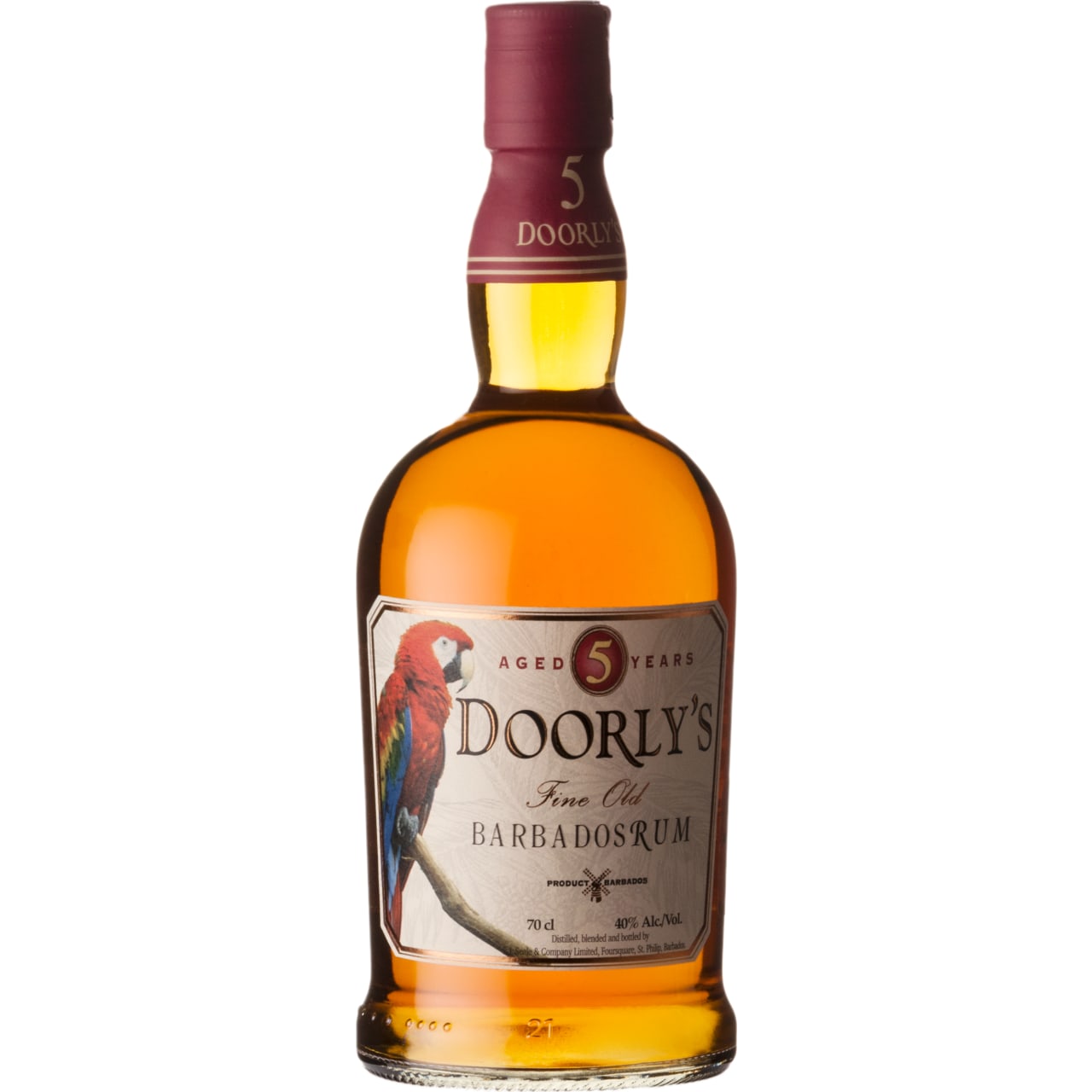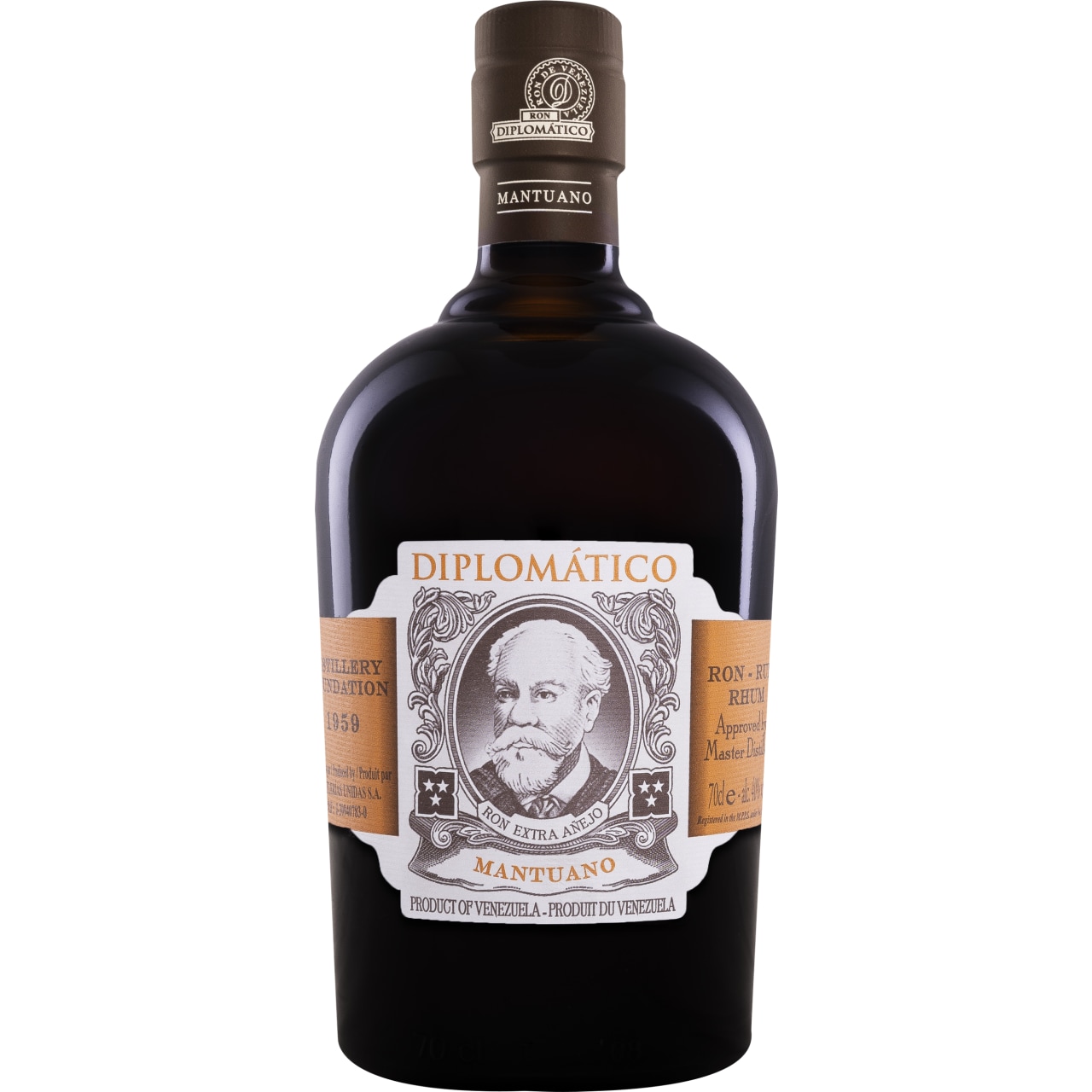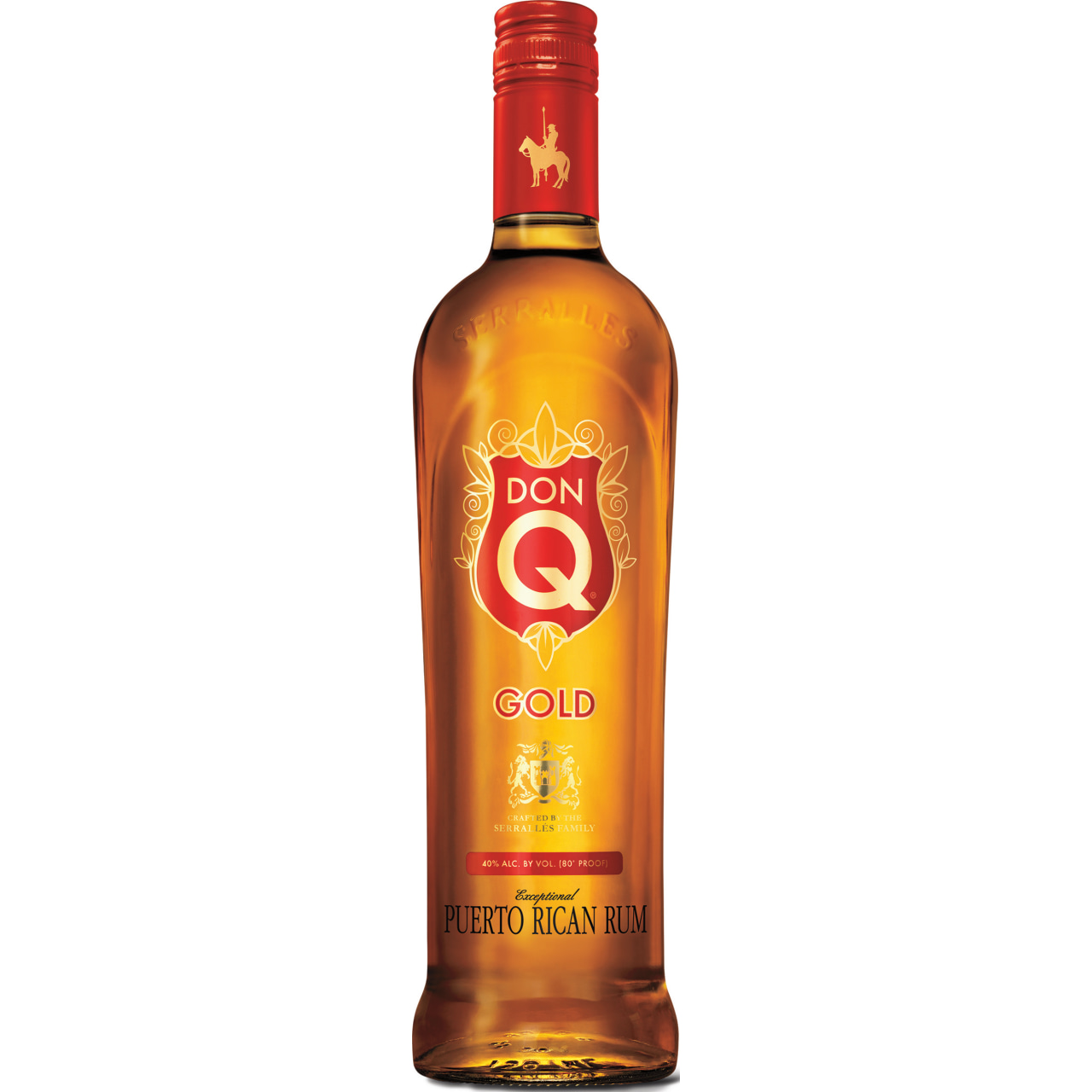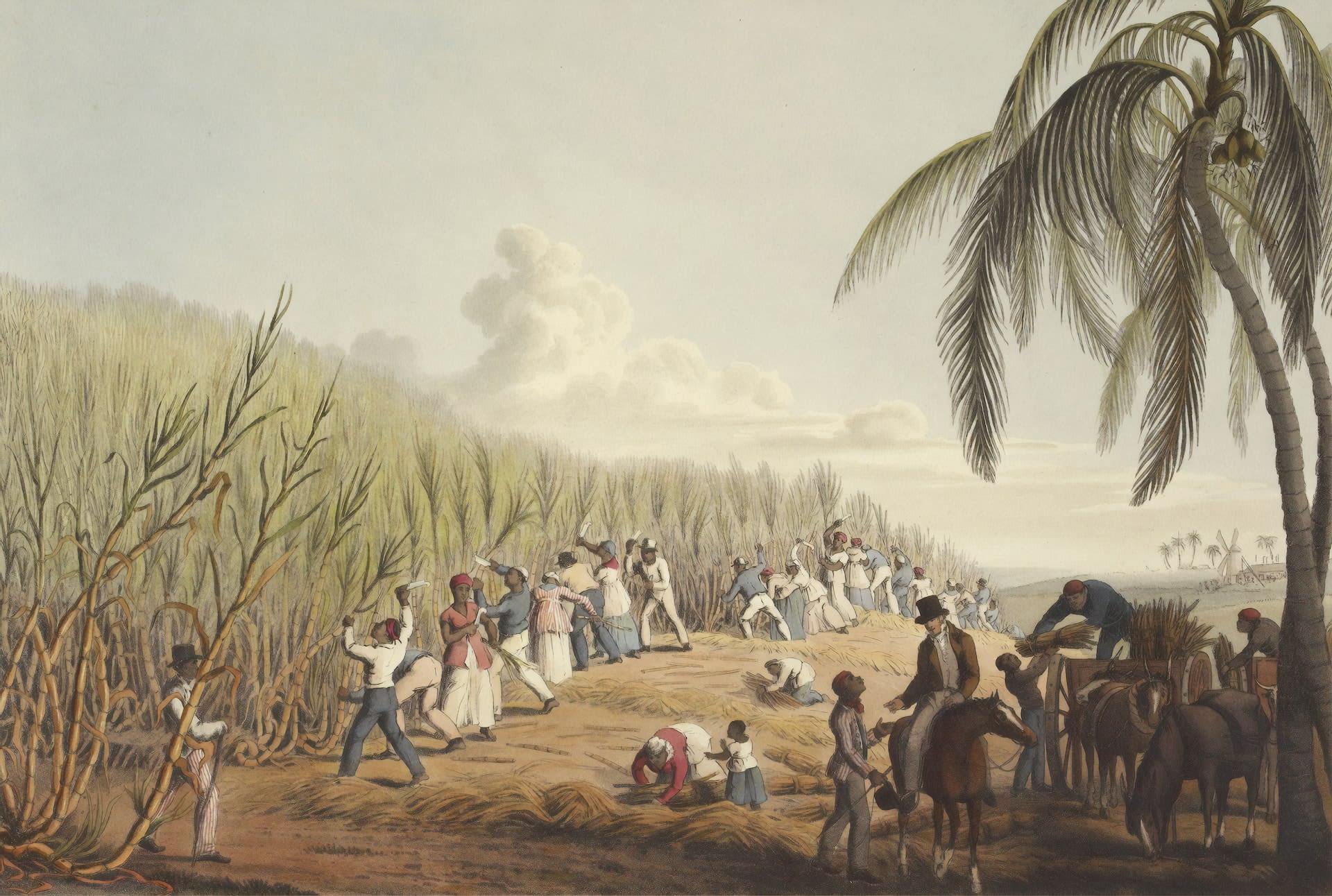

Before we begin, a needed acknowledgement.
Before we kick off on the how historic legacies have shaped what we know today, no article about colonial influence on rum is complete without recognising the reality of how that happened. The history of rum in Latin America is regrettably deeply entwined with the transatlantic slave trade. The spirit's origins lie in the 17th century Caribbean sugar plantations, where enslaved Africans were brought in vast numbers to labour under brutal conditions.
As sugar became a lucrative global commodity, the 'triangle trade' emerged, involving the exchange of slaves, sugar and rum between Africa, the Americas, and Europe. Distilleries often emerged on or near these plantations turning molasses, a by-product of sugar refining, into rum. This rum was then shipped to Europe or North America, and the profits were used to buy more enslaved people.
It's not the story anyone wants to be telling when they set out to talk about the amazing stylistic differences between rum production within the region and how England, France and Spain have each shaped it, but understanding this part of the spirit's sordid history is crucial.
It reminds us of the human cost that was once associated with this spirit and underscores the importance of demanding ethical trade and production practices in the industry today.
Thankfully, the abolition of slavery in the 19th century marked a new era for the rum industry. Today, Latin America's rum industry is a source of national pride, providing jobs, supporting local economies, and honouring the craftsmanship and art of rum making. Acknowledging it speaks to rum's story of transformation and how far things have come. How far they needed to.
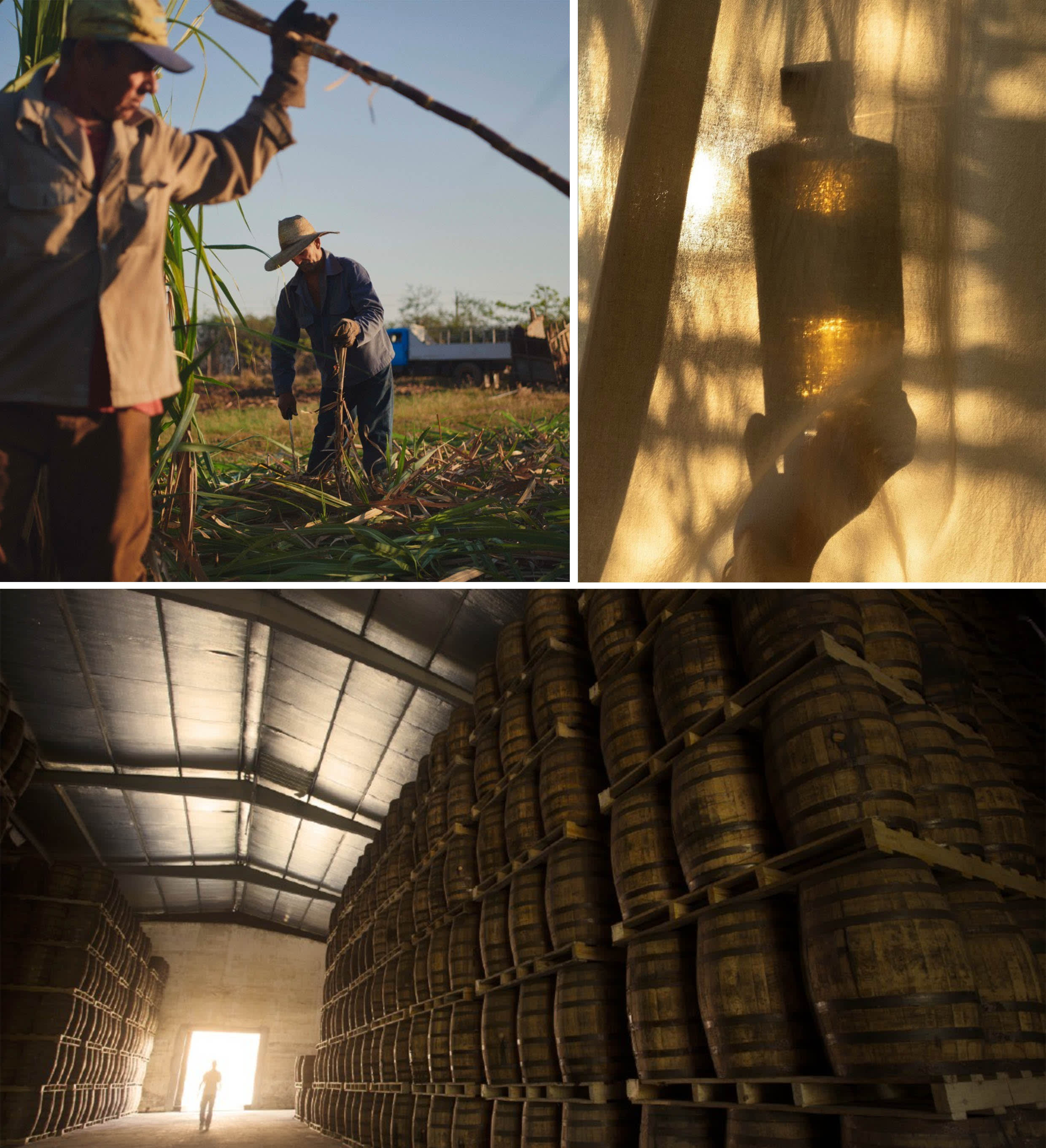

Spanish Influence: Aged Elegance from the ‘Roneros’
Spanish-speaking Latin America, including nations like Cuba, Guatemala, Panama, Puerto Rico and the Dominican Republic, are all places where the tradition of “Ron” production runs deep.
The Spanish introduced sugarcane to the Americas in the 16th century, and their 'Roneros' (Rum makers) quickly mastered the art of distilling sugarcane juice and molasses into a wonderfully smooth, rich spirit.
One of the obvious influences of their colonial past is when producers make use of the solera method, traditionally associated with aging sherry in Spain. This intricate and time-honoured system involves a dynamic process of blending rums of different ages in a series of barrels.
Never heard of it? Here's how it works: Barrels are stacked in tiers, with the oldest rum (the solera) on the bottom, and progressively younger rums layered above. When it's time to bottle, only a portion of the bottom-layer rum is drawn off. The amount taken from the solera is then replenished with rum from the tier above, and so on, with new, unaged rum added to the topmost tier.
This method allows for a consistent, complex, and richly flavoured rum. The result of this careful blending and aging process is a rum that carries the characteristics of many different ages, with the smooth and well-rounded profile of older rums and the vibrant notes of younger ones. It's a meticulous process to implement well, but one that has the potential to create some of the most sophisticated and layered rums on the market.
If you've ever sipped on a Ron Abuelo, Don Q or a Brugal, you've tasted this blending legacy firsthand, while the likes of Eminente also showcase their respective country's longstanding hispanic heritage in other unique ways.
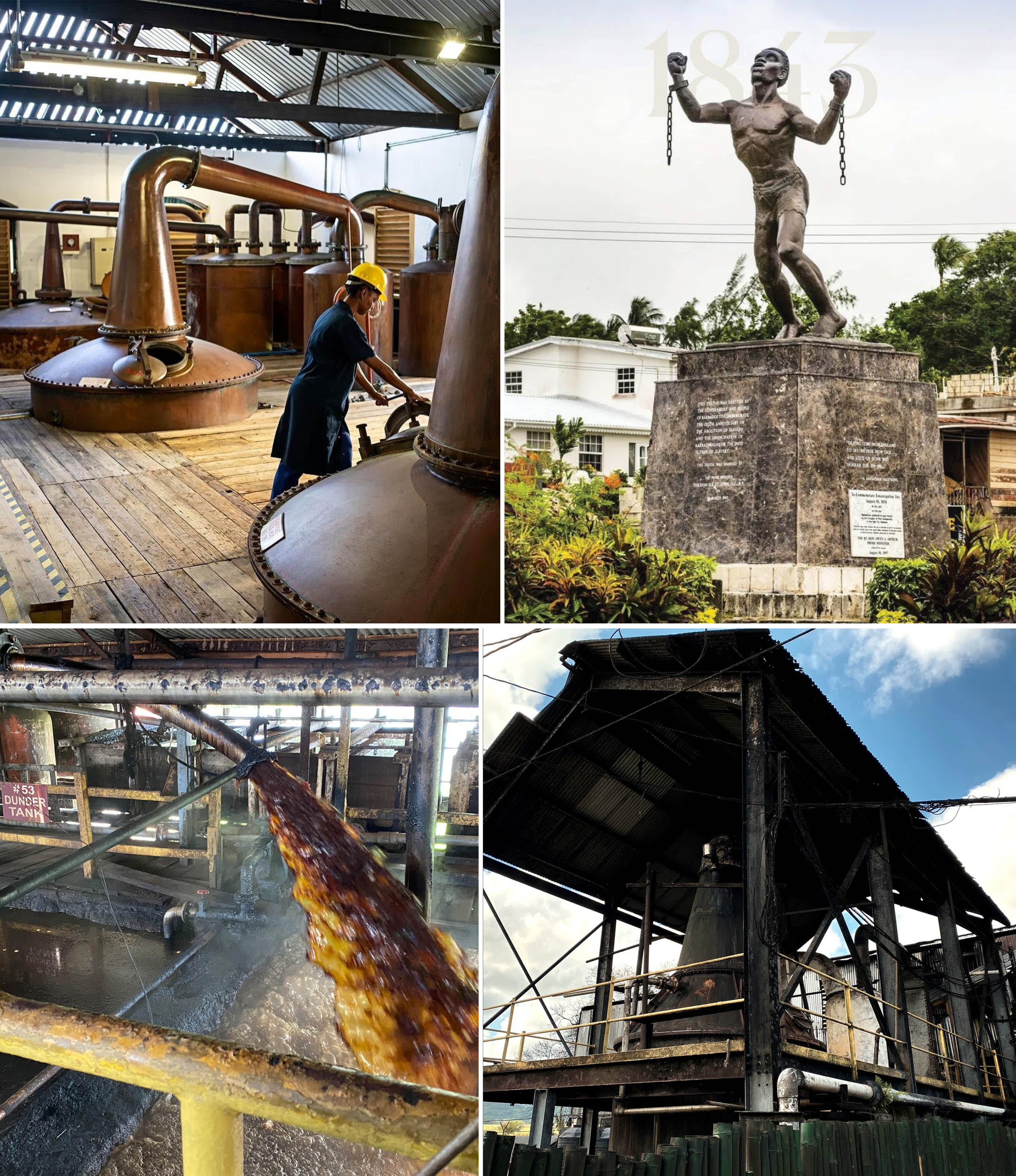

British Influence: Bolder is Better
Moving on from the Spanish speaking countries, let’s weigh our anchor in the former English Caribbean territories, notably in countries like Jamaica, Barbados and Guyana.
Here, the British influence on rum production is undeniable. The British love for the ‘demon water’ began in the 17th century when British privateers turned merchants began producing rum from molasses, a by-product of the sugar industry.
English-style rums are typically heavier and more robust than their Spanish counterparts. While it’s more diverse now the general rule follows the historic influence – rums tend to be pot-stilled, often resulting in a higher ester count which contributes to a more flavourful, punchier spirit.
Another influence still visible today is how the British also pioneered the tradition of Navy Strength rum, a high-proof spirit strong enough allow gunpowder to ignite even when soaked in it.
Fans of bold flavours might gravitate toward rums from Appleton Estate, Mount Gay or Hampden. These brands carry forward the British heritage of strong, assertive rum, perfect for sipping or adding a powerful punch to your cocktail.
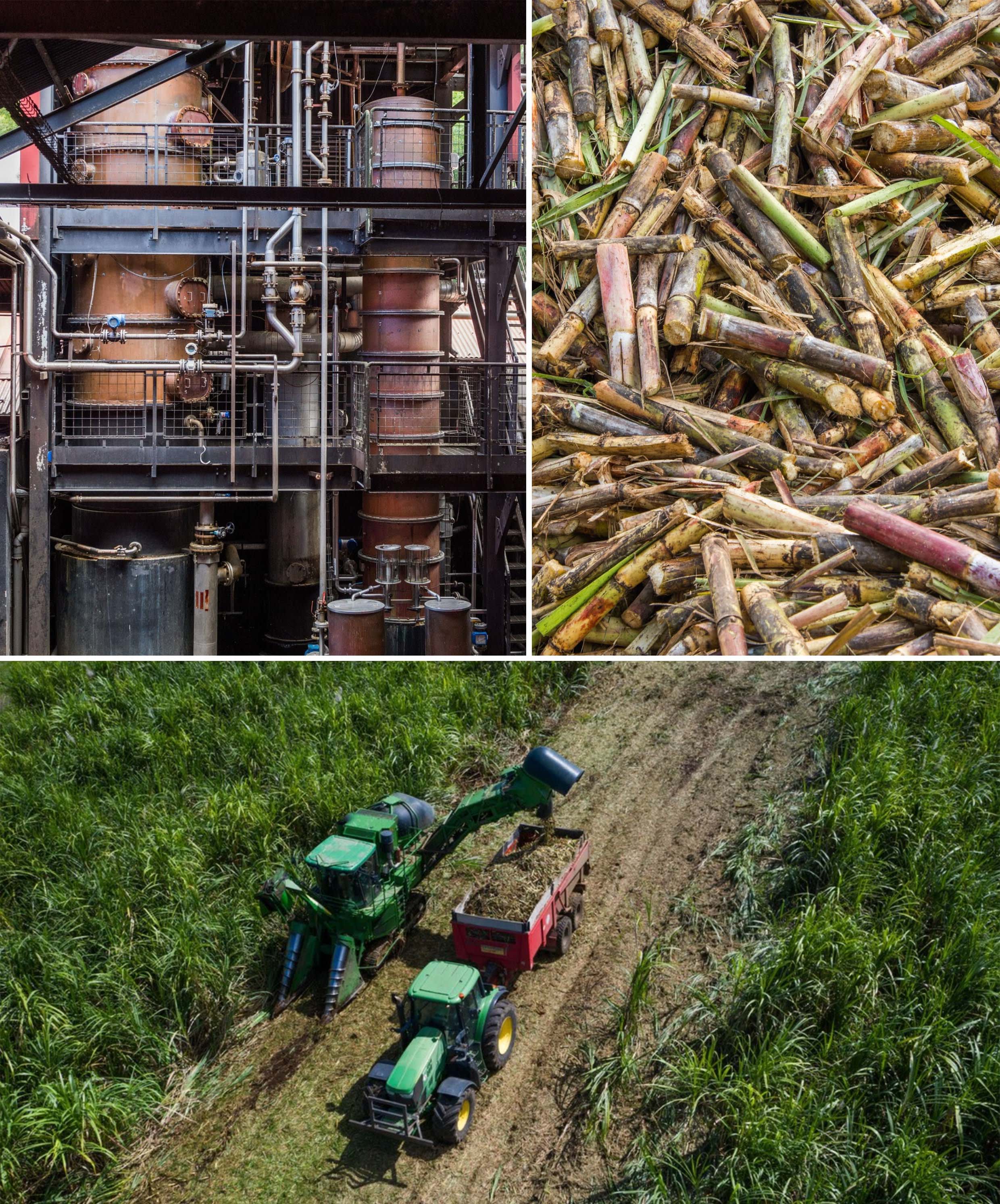

French Influence: Terroir and ‘Rhum Agricole’
Lastly, former French territories like Martinique and Guadeloupe, where 'Rhum Agricole' is the pride of the islands and shows the hallmarks of years of influence. This style of rum is unique; instead of using molasses, Rhum Agricole is distilled directly from freshly pressed sugarcane juice, a technique inherited from the French cognac distillation methods.
Of course, methods moved on and while Cognac producers all work in pot stills of maximum size, Rhum Agricole producers now often operate huge columns in tandem with pots. It’s worth noting that the method wasn’t purely a French import either, with the likes of Brazil’s Cachaça thought to have come from the Portuguese many years earlier.
What's fascinating about Rhum Agricole and the link to french traditions though is its embodiment of 'terroir' and how that’s been protected - the idea that the soil, climate, and environment impart unique characteristics to the final product. These rums offer a grassy, herbaceous flavour profile that is drastically different from their British and Spanish counterparts.
Flavours aside, it’s clear to see the value of that terroir in the way former French colonies have applied legal framework around it.
France's unique approach to regulating rum production in its overseas territories can be attributed to a combination of factors. The first is the historical legacy of Appellations -France has a long-standing tradition of creating and enforcing appellations for its wine, cheese, and other agricultural products to ensure quality and regional authenticity. It’s natural that this approach extended to rum production in its territories.
The second is the way the country goes about the preservation of its cultural heritage. They view legal regulations as a key part of helping to preserve traditional methods, maintaining the distinct character and heritage of these rums and not allowing them to evolve beyond a distinct and controlled parameter. For better and for worse, the English and Spanish have never embraced the desire for bureaucracy and paperwork as solicitously.
If you’re looking to dip your toes into the world of Rhum Agricole, brands like Rhum J.M. or Clement would be an excellent place to start.
The Legacy Continues
So there you have it - a whirlwind tour of rum's colonial influence on the rum we sip and savour today.
Each style tells a story of history, culture, and the enduring power of this versatile spirit. In the end, whether you prefer your rum in a cocktail, neat, or on the rocks, understanding these influences deepens your appreciation for every drop.
So, next time you're savouring your favourite rum, take a moment to reflect on the centuries of history and tradition in your glass.
